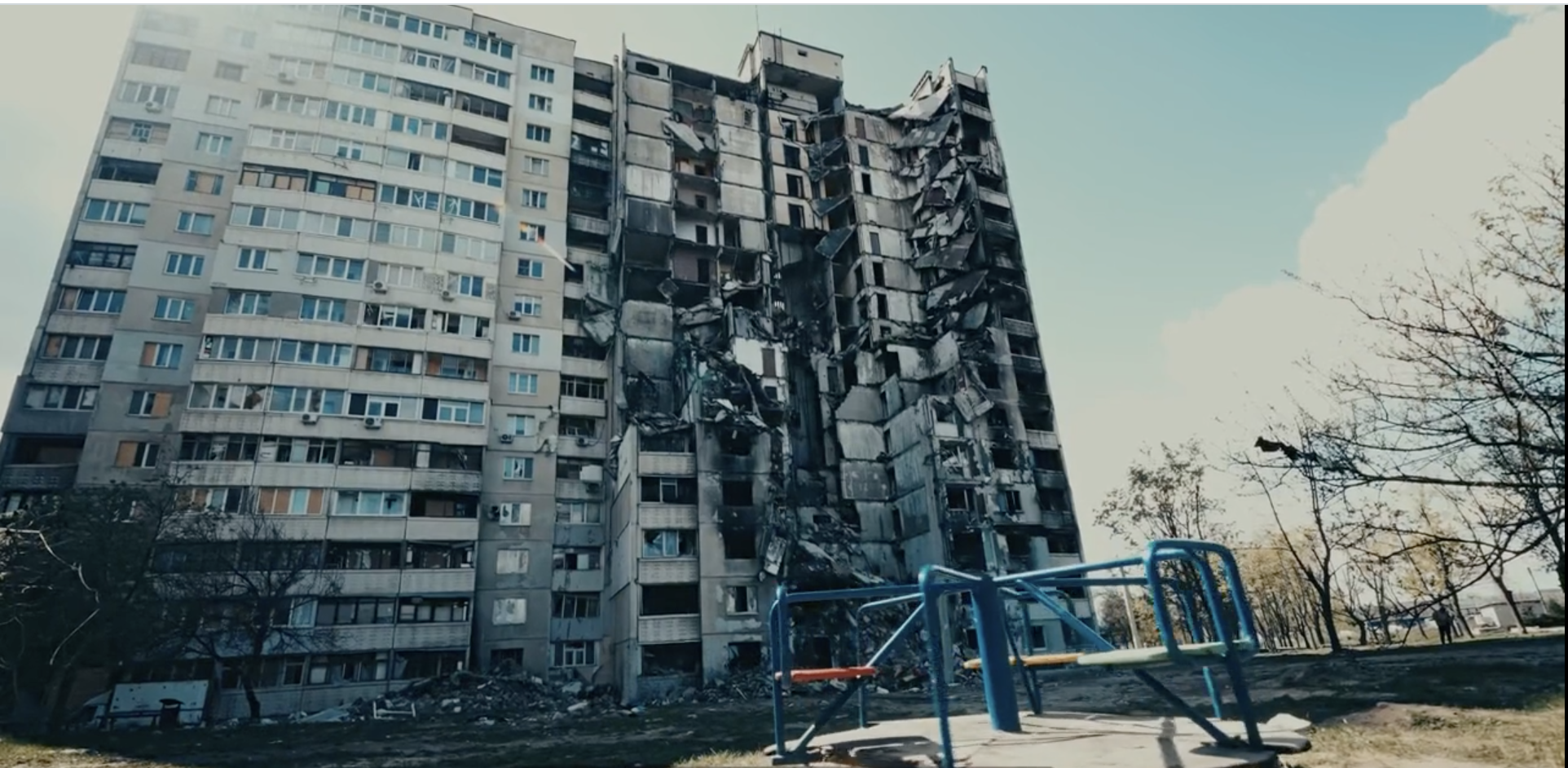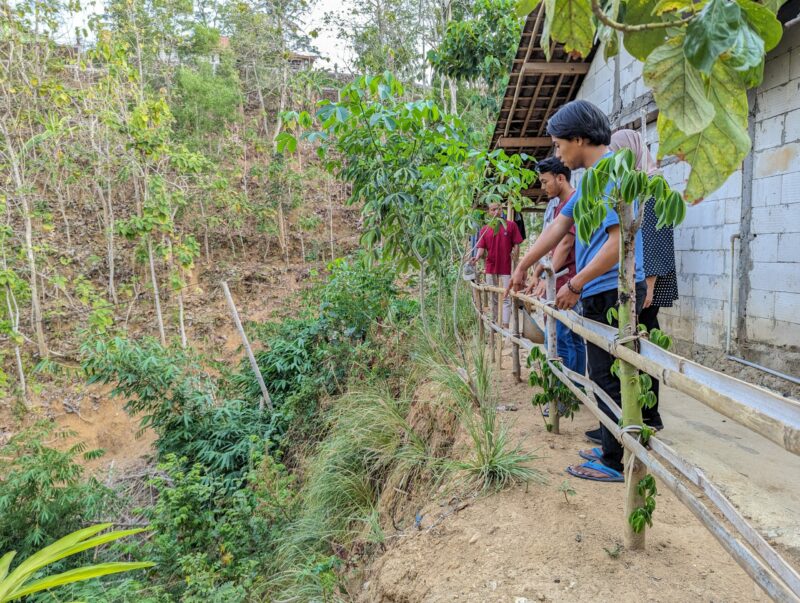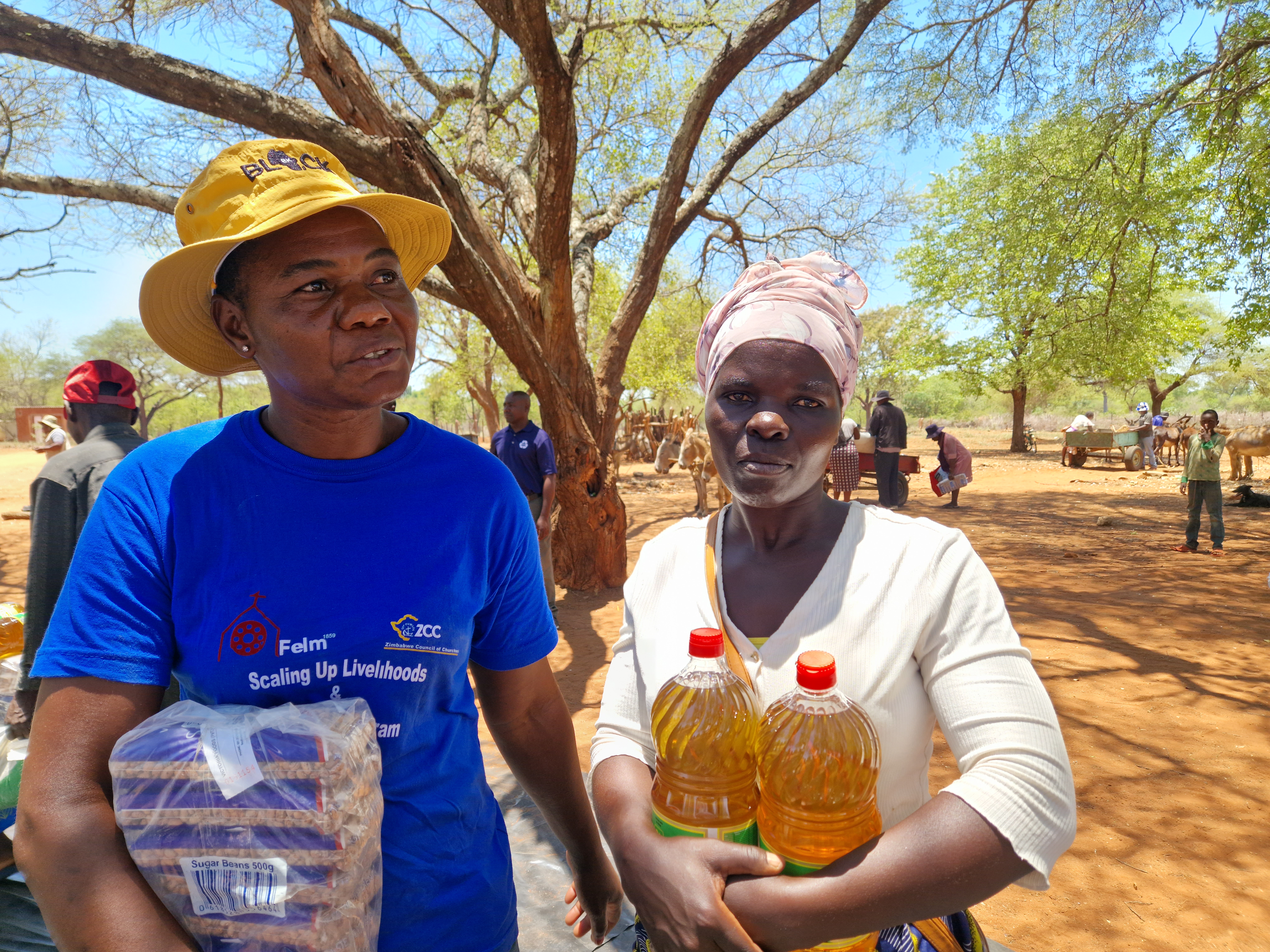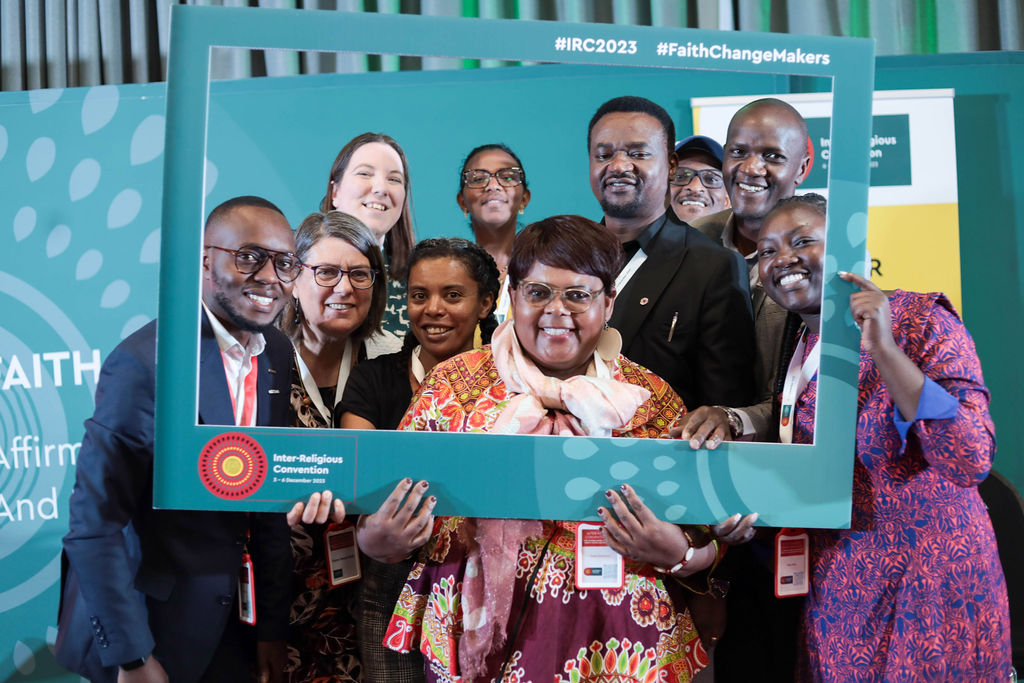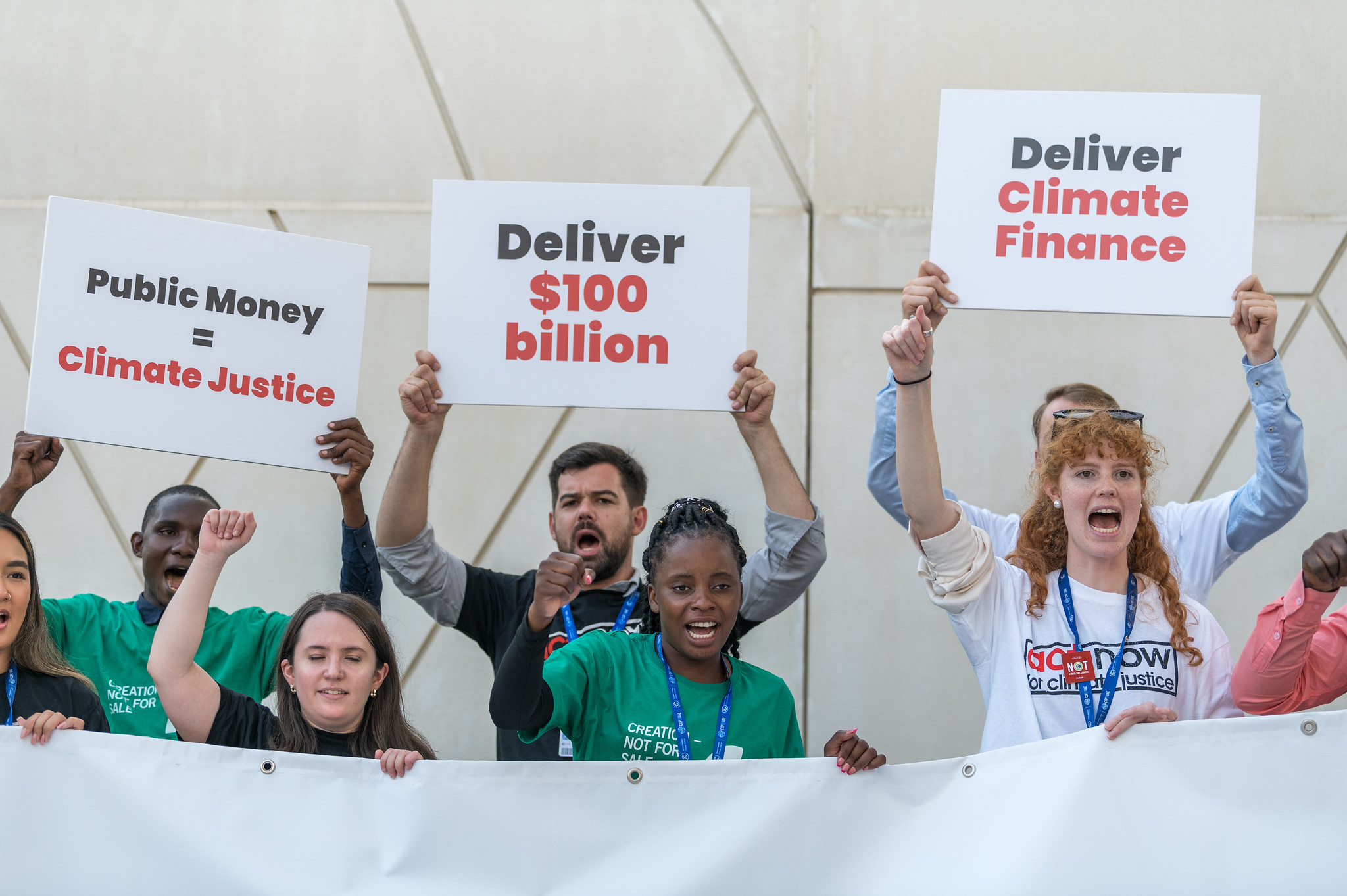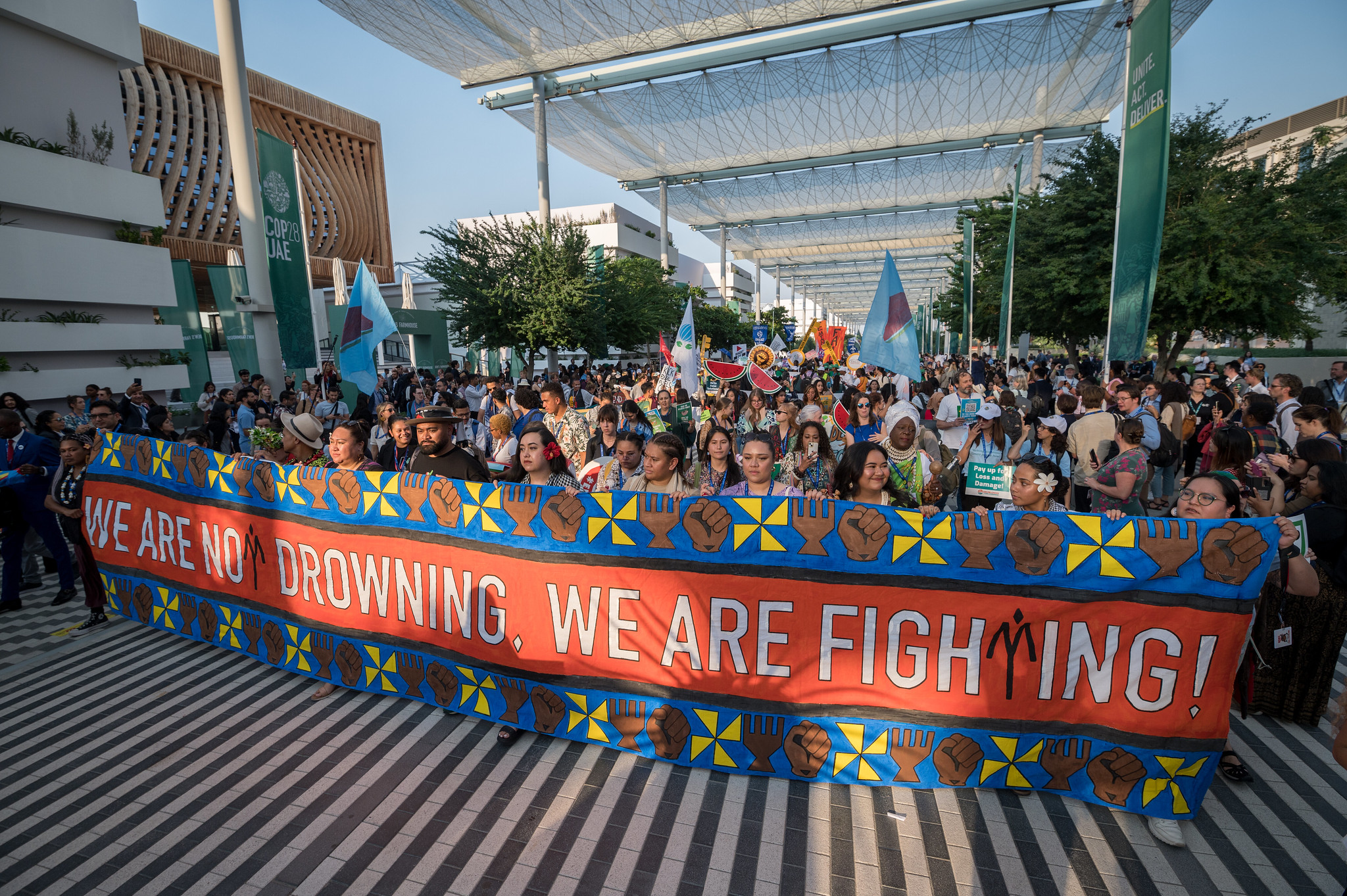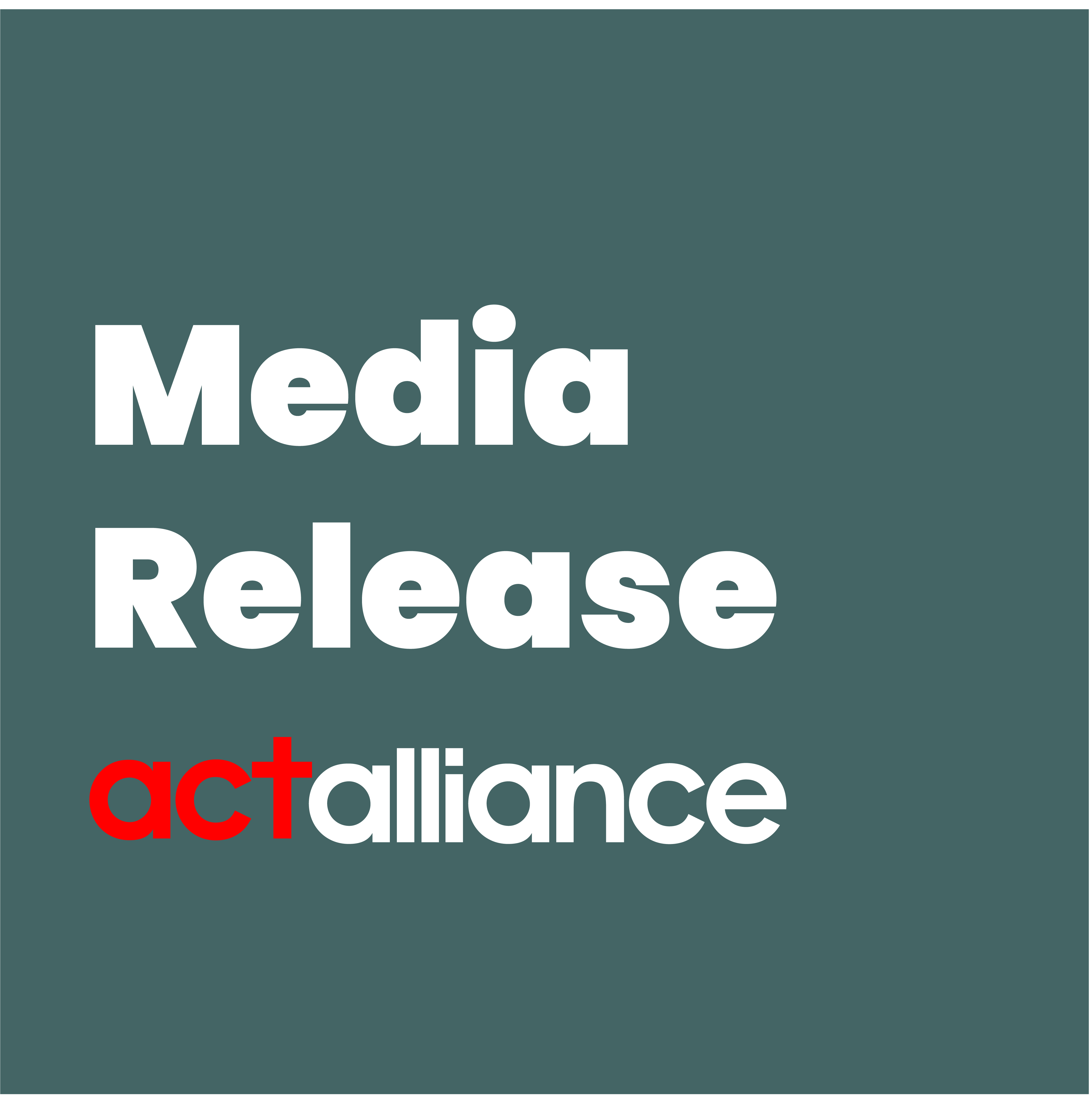For Immediate Release
December 13, 2023 13:00 GST
Perhaps not surprisingly, COP28 moved into overtime after the Presidency released a weak draft text on December 11, one that was met with disdain by many nations, including the US and the UK, and with civil society organisations and faith groups demanding stronger text.
Although the Presidency was determined to end by noon on December 12th, that timeline was not met, with the final plenary only beginning at 11am on the morning of December 13. Parties worked through the night to deliver a sort-of consensus, one that left at least one Global South group noting for the record that they hadn’t finished their discussion before the gavel fell.
ACT Alliance followed the negotiations for more than two weeks, with ACT members from around the world keeping track of all climate finance issues, in particular Adaptation and Loss and Damage funding, with an eye on the Global Stocktake. How human rights and gender were treated in the negotiations were also key concerns.
Overall, COP28 started on a high note for those concerned about climate justice. Parties agreed to operationalise the Loss and Damage Fund with pledges of up to $792 million. Sadly, this is less than 1 percent of what is needed to support people facing the greatest challenges from the impacts of climate change.
Global Stocktake
Unfortunately, the ambition of the Global Stocktake (GST) is the exact opposite of what is needed to keep global warming below 1.5 degrees Celsius.
What we see in the GST is weak language on human rights. Merely respecting human rights is not enough.
Elena Cedillo of Lutheran World Federation and co-chair of the ACT Alliance Climate Justice group, comments:
Protecting, promoting and fulfilling human rights must be at the heart of the climate negotiations. Leaders at the COP28 climate summit should have put human rights at the centre. Ambitious climate action prioritises justice and equity; there is no climate justice without human rights.
Loss and Damage
The agreement to operationalise the Loss and Damage Fund on the very first day was a breakthrough.
Elena Cedillo, LWF and co-chair of ACT’s Climate Justice group, comments:
While pledges came in, much more is needed to support people affected by climate change-related loss and damage. Contributions to the fund should be based on common but differentiated responsibilities and the polluter pays principle, not be made on a voluntary basis.
Maua Maro, LWF delegate to COP28 comments:
Though the result of COP28 is disappointing, youth will never give up pushing for more ambition and a clear path to implement the agreed operationalisation of the Loss and Damage Fund.
As youth living in a community where there is no more room for adaptation, mainstreaming non-economic loss and damage, especially on the intangible impacts caused by climate change such as human-induced mobility and displacement, loss of land and people, culture and the knowledge of Indigenous peoples, must be addressed without delay.
Climate Finance
Julius Mbatia, ACT Alliance Climate Justice lead, comments:
Yet again, climate finance has played an intricate role in determining the level of ambition at COP28. It is clear that the COP28 finance package is worrying. Commitment by rich nations to provide public, new and additional, grant-based concessional finance fell through the cracks on many occasions.
Adaptation
The negotiations in Dubai adopted a framework for the Global Goal on Adaptation. It suggests targets to seven thematic areas and acknowledges the need to develop indicators based on best available science for accountable monitoring of the progress of securing people’s lives and livelihoods in a changing climate.
Furthermore, the framework urges parties to build adaptation action in an inclusive fashion, taking into consideration and involving localised communities, Indigenous peoples and other marginalised groups such as persons with disabilities.
Although the decision pinpoints the need to ramp up action and support for adaptation, poor and vulnerable countries should not be lulled into a false sense of security: the decision only recalls and acknowledges previous commitments that are hardly sufficient for closing the adaptation gap.
Niko Humalisto of Felm in Finland, an ACT Alliance member, comments:
It is saddening that the decision doesn’t demand new and additional finances from developed countries. Without adequate resources, we fail to guarantee the right to development for those who bear the heaviest brunt of the carbon legacy of the richest nations.
Gender
Jessica Novia of ACT member YAKKUM in Indonesia, and an ACT COP28 delegate, comments:
Climate justice should go hand in hand with gender justice. In Indonesia, there were more than 3,000 disasters in 2023, overwhelmingly hydro meteorological disasters. These disproportionately affect women, girls and people with disabilities. Funding for loss and damage should reach them before its too late.
Mitigation
Mattias Söderberg of DanChurchAid and co-chair of ACT’s Climate Justice group comments:
We now have a new direction for world development. The fossil era is ending and we should move towards a green future. That is great, but the agreement is unfortunately full of loopholes. It will thus be up to each country, how they will move forward. At the same time there is no promise about additional funding to the global south, which means that the transition may not happen. The next COP will focus on finance, and that is when we will find out if this green transition will be possible.
Youth
Savanna Sullivan for intergenerational justice /youth engagement-LWF Program Executive for Youth comments:
The world and the COP must acknowledge that not only does climate change disproportionately affect young people, but that our conversations about justice are incomplete without the creativity and wisdom of every generation – including youth.
Human rights
Sara Savva, Deputy Director of Syria’s GOPA-DERD, an ACT member, and an ACT COP28 Delegate comments:
Climate change is not only a political or economic issue, but also a human rights issue – the biggest in human history. Unless we adopt a human rights-based approach to guide policies and measures of COP28 mitigation and adaptation, climate justice will be a mirage; indirectly violating human rights.
To arrange interviews, please contact:
Mattias Söderberg, co-chair ACT Climate Justice group, Phone or WA +45 29 70 06 09
Fiona Connelly, ACT Alliance Communications, phone or WA +1 647 210-1238
